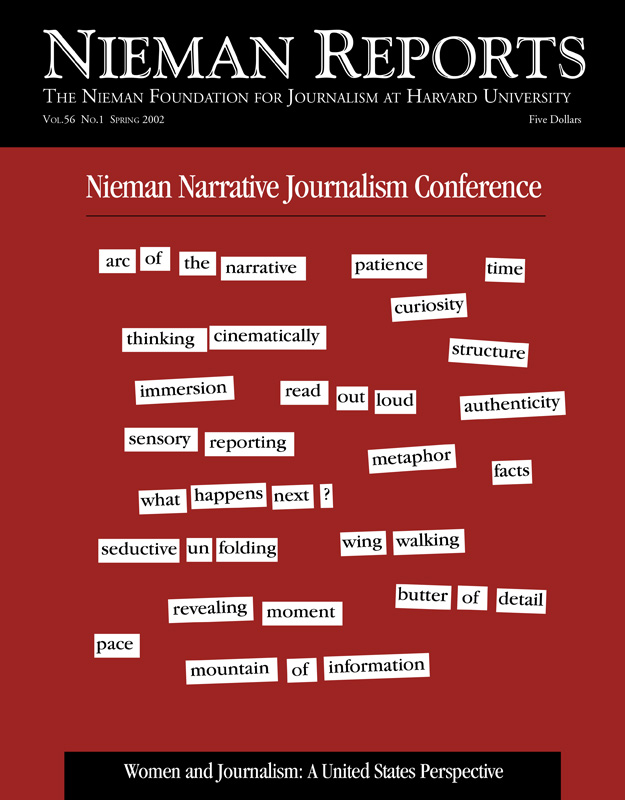
Republic.com
Cass Sunstein
Princeton University Press. 240 Pages. $19.95.
Visualize a future in which you never again have to tolerate reading an opinion you don’t agree with, slog through boring world news to get to the sports section, or happen across those disturbing pictures of the homeless. Technology can make that happen. But should a free society allow that to happen?
In his new book, “Republic.com,” Cass Sunstein, Karl N. Llewellyn Distinguished Service Professor of Jurisprudence at the University of Chicago’s law school and department of political science, argues that one of the great promises of the Internet, in fact, also poses a threat to robust deliberative democracy.
Sunstein focuses on “The Daily Me,” which has become a shorthand term for the ability of Internet technology to let users target the information they want and screen out what they don’t. Its application ranges from portal sites (“My Yahoo!,” “My Excite,” etc.) to news sites that let users create their own news package, to powerful search engines that can track down Web sites, single documents, groups or people.
This technology has revolutionized the way individuals are able to filter highly specific information online and to find like-minded thinkers with whom to exchange views. But, Sunstein argues, it can also lead to individuals too easily walling themselves off from diverse opinions, shared experiences with the general community, and the joy of the serendipitous encounter with information they never would have thought to look for. Society, he says, could become more fragmented.
“When society is fragmented in this way, diverse groups will tend to polarize in a way that can breed extremism and even hatred and violence. New technologies, emphatically including the Internet, are dramatically increasing people’s ability to hear echoes of their own voices and to wall themselves off from others,” Sunstein writes.
He carefully balances his support for the benefits of the Internet with what he regards as the threats posed by it. Sunstein also outlines specific suggestions for making the Internet a more robust public forum for diverse ideas.
Much of what Sunstein proposes in “Republic.com” are controversial suggestions. Among Sunstein’s proposals for alleviating the negative effects of the “The Daily Me” is his suggestion that government should regulate sites to provide links to sites with opposing views. This argument serves as a lightning rod for strongly held views about regulation of the Internet—whether it should happen and, if so, by whom—and about freedom of speech and the right to publish online. Sunstein points out that the Internet is already regulated in areas such as property rights, contract law, libel and pornography. The question, he then argues, is not whether to regulate the Internet but how.
“When we are discussing possible approaches to the Internet…, we should never suggest that one route involves government regulation and another route does not. Statements of this kind produce confusion about what we are now doing and about our real options,” he writes.
Sunstein draws parallels between broadcasting and the Internet on the issue of providing a diversity of ideas. He recalls the history of the now defunct Fairness Doctrine, which required broadcasters to provide equal time to differing political viewpoints and was meant to stimulate political debate and provide a wide range of opinion on broadcast channels. It was finally eliminated, in part, because it chilled coverage of public views, he says.
However, Sunstein, who has written extensively on constitutional law and the First Amendment, notes that the Supreme Court has upheld other legislation that requires cable television providers to make local community and educational programming available on their channels. And he quotes Justice Stephen Breyer’s separate opinion in this case (Turner Broadcasting Co. v. FCC, No. 95-992): “[The statute’s] ‘policy, in turn, seeks to facilitate the public discussion and informed deliberation, which, as Justice Brandeis pointed out many years ago, democratic government presupposes and the First Amendment seeks to achieve.’” Sunstein calls this “an unambiguous endorsement of the idea that government has the power to regulate communications technologies to promote goals associated with deliberative democracy.”
Sunstein treads carefully in laying out his suggestions acknowledging that new Internet technologies offer enormous opportunities, but adding that it would be “worthwhile to consider public initiatives” where they fail. He outlines specific reform possibilities to improve exposure to diverse points of view on the Internet. They include:
- Creation of “deliberative domains” where diverse exchange of views can occur online
- Disclosure of relevant conduct by Web producers
- Voluntary self-regulation by Web producers
- Publicly subsidized programming and Web sites
- Government-imposed rules that would require the most popular Web sites to provide links to sites with diverse views
- Government-imposed rules that would require highly partisan Web sites to provide links to sites with opposing views
Some of his ideas are intriguing, if politically difficult to achieve. As an example of publicly subsidized programming, Sunstein quotes a suggestion by Internet specialist Andrew Shapiro that the government should support a special Web site called, perhaps, “Public.Net,” that would be dedicated to public debate of important issues. Acknowledging the dangers of government control, Sunstein suggests a mixture of government and commercial subsidies and non-government control of such a site and, as an example, points to the Public Broadcasting System (PBS).
Perhaps the most controversial suggestion is one of creating legislation that would require either very popular or highly partisan sites to provide links to other sites. Many Internet sites do this already, and Sunstein argues that this type of voluntary compliance is preferable. His principle concern with enforced linking is that site managers might steer clear of any controversial issues as a result.
This proposal raises obvious questions. Who would decide what constitutes a very popular or highly partisan site? What would the criteria be? What kinds of links and how many should be provided? What happens to sites that don’t comply and how are they policed?
Other questions arise throughout the book. How big a problem is “The Daily Me”? Does the fact that many sites offer a personalization function mean that fewer people are using general interest sites? Perhaps they are using both or multiple sites. And what of the mainstream news media? Sunstein refers to newspapers, magazines and broadcasters as “public forums of an especially important sort,” saying they provide “the unplanned and unchosen encounters” that counteract the effects of “The Daily Me.” He argues that increased consumer-driven personal control over consumption of news online decreases the power of what he calls “general interest intermediaries.”
But this author fails to address the success of these publishers and broadcasters in reaching a large audience through their Internet versions. The most trafficked news sites on the Internet are MSNBC.com, CNN.com, The New York Times on the Web (NYTimes.com), Washingtonpost.com, and USAToday.com, among others, drawing millions of news consumers each month.
In an example of how quickly things can change on the Internet, Zatso.com, which is cited by Sunstein as an example of the trend in personalized news, did not survive the “dot-bomb” economic slump. Indeed, many smaller niche sites have disappeared and the current trend, at least for news publishing on the Internet, is toward consolidation of small sites under the umbrella of big mainstream publishers.
In “Republic.com,” Sunstein contributes a strong argument that, at the very least, we should be paying closer attention as the Internet continues its evolution. His suggestions for reform are thoughtful and invite further debate. And he rightly challenges us not to stop asking the important questions: “If we seek to enlist current technologies in the service of democratic ideals, what reforms would be better?”
Katie King, a 1994 Nieman Fellow, is a writer and online news development specialist in Washington, D.C.



